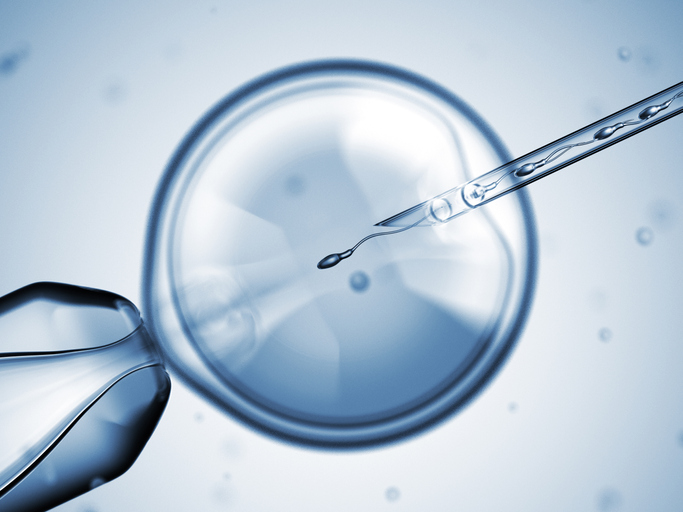What does it mean to be ‘infertile’?
When you’re infertile, it means you can’t get pregnant (conceive) even though you’re having regular unprotected sex – after 12 months infertility is diagnosed.
How common is infertility?
Infertility is a common problem affecting around 15% of couples worldwide, that’s around 48 million couples and 186 million individuals. In the UK, around 1 in 7 heterosexual couples seek medical advice because they’re struggling to get pregnant.
Follow the links to read more about specific causes of male and female infertility.
Dealing with infertility
For many people, infertility can be a rollercoaster of emotional and physical ups and downs. Everyone is different, but the good news is that there is more understanding now than ever before – and more treatment options and support available from charities and online forums.
That doesn’t mean coping with infertility is easy, but you’ve come to the right place for information you can trust to support and inform you on your journey.
Infertility symptoms: how to know if you might have fertility problems
There are 2 types of infertility. Primary infertility is when you’ve never conceived before, while secondary infertility is when you’ve had a previous pregnancy, but are experiencing problems getting pregnant again.
If you have ‘healthy’ or ‘normal’ periods, you may still have fertility problems. For those with a penis, your ability to have sex and ejaculate can be normal even if you have fertility problems.
1. Not getting pregnant after a year is a sign of fertility issues
The most obvious symptom of infertility is not getting pregnant despite trying for 1 year or more without using any contraception.
For same-sex couples, infertility is defined as not getting pregnant after 6 cycles of insemination (a fertility treatment where sperm is directly inserted into the womb).
2. Period problems and pelvic pain could signal female fertility problems
For female infertility, a number of signs and symptoms offer clues to fertility issues. These can include abnormal or irregular periods, heavier or more painful periods and pelvic pain.
3. Clues to possible male infertility
Usually there will be no signs and symptoms of infertility in men other than their partner failing to conceive, but in some cases, men may suffer sexual problems, a pain, lump or swelling in the testicles or abnormal breast growth.
When to see a doctor about infertility
If you haven’t got pregnant after a year of trying for a baby (or 6 months if you are 35 or older), see your doctor for advice. It may just happen naturally of course, but if there’s a problem it’s better to find out sooner rather than later, so you (and your partner) can get treated for any underlying medical problems or if appropriate start fertility treatments.
Remember, infertility is common and doctors can offer support and advice. You can also get additional support from online resources and private clinics (see Outlook below).
What causes infertility?
There are many causes of infertility, in both men and women, including medical problems, lifestyle issues, increasing age, medication side effects, and having infrequent sex or sex at the wrong time of the month.
Read more about how to improve your chances of getting pregnant.
Medical causes of infertility
These include damaged or blocked fallopian tubes and hormone disorders in women, and poor quality semen (the fluid containing sperm that is ejaculated during sex) and mumps during puberty, epididymitis, undescended testicles, testicle infections or injury in men.
Read more about the causes of female infertility and male infertility.
Lifestyle factors
Being overweight or underweight, drinking too much alcohol, smoking, taking recreational drugs or anabolic steroids, or excessive exercise (in women) can all affect fertility.
Age
As you age, your fertility gradually declines too, although age impacts men’s fertility less than it does women as they get older.
Medication side effects
The side effects of certain medicines including chemotherapy or the long-term use or high doses of non-steroidal anti-inflammatory drugs (NSAIDS) can also make it more difficult to get pregnant.
Diagnosis: Am I infertile?
Having timely tests can help you get to the bottom of fertility issues and get the right treatment. See a doctor for advice on what next steps you should take, and read more about infertility tests.
Infertility tests
There are lots of different fertility tests for women to check for cysts, blockages, and hormone levels – and semen analysis in men. As well as tests for chlamydia which can affect female fertility and STIs which can affect fertility in both men and women.
Infertility treatments
Be reassured that there is lots of fertility assistance available now.
Options include:
- drug and hormone treatments
- surgery to unblock fallopian tubes in women
- surgery to clear blockages in the male epididymis (a coil-like structure in the testicles where sperm is stored and transported)
- assisted conception techniques, including in vitro fertilisation (IVF), where the egg is fertilised outside the body
- egg and sperm donation
Read more about fertility treatments.
There’s lots of fertility help and support available in the UK, including NHS fertility treatments and tests.
Outlook: What to expect if you have fertility problems
There is a lot of help and support available to help you and your partner conceive – or manage to find your way through it if you don’t.
-
If your fertility problem is related to sex – for example, you’re not having it regularly enough – it may be easy to resolve it.
-
If you need treatment, an NHS doctor will advise you on what’s best for your individual situation and what’s available to you from your local clinical commissioning group (CCG) (in the UK only).
-
Private treatment is an option too, but it can be expensive. When choosing a clinic or doctor in the UK, be sure to check that the clinic is licensed by the Human Fertilisation and Embryology Authority (HFEA).
-
Trying to get pregnant when you have fertility problems can be an emotional rollercoaster, so it’s important to support each other during this stressful time and to get additional support if you need it. There are many support groups to help you.
Key takeaways
- infertility is very common, affecting 15% of couples
- causes of female infertility include ovulation problems, tube blockages or damage, STIs such as chlamydia and medical conditions such as PCOS
- causes of male infertility include mumps, chlamydia and undescended testicles
- infertility treatments include medication, surgery, IVF and egg or sperm donation
- as lifestyle factors can impact your fertility, stopping smoking, drinking less alcohol and keeping your stress levels in check can improve your chances of conceiving






